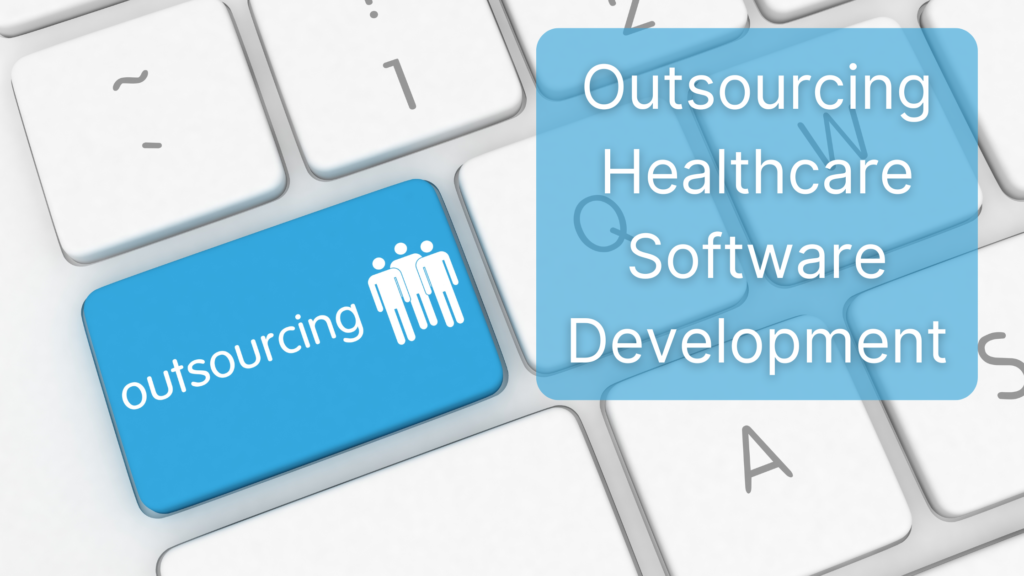Is your clinic struggling with slow, outdated, or inefficient patient management systems? Are manual processes, lost patient records, and long administrative hours holding your practice back? If so, it might be time to consider outsourcing healthcare software development to an experienced IT provider.
With increasing patient demands and the growing need for paperless, secure, and streamlined medical processes, Filipino healthcare providers are looking for cost-effective, reliable digital solutions. Whether you need an electronic medical records (EMR) system, telemedicine platform, or clinic management software, outsourcing can help reduce costs, speed up implementation, and improve overall efficiency. But is it the right move for your clinic, hospital, or telemedicine practice in the Philippines?
According to Deloitte’s Global Outsourcing Survey, 70% of companies outsource IT functions to cut costs and enhance service quality. Similarly, research from Health IT Analytics shows that healthcare organizations that outsource software development experience a 30% faster time-to-market for digital solutions.
With these clear advantages, it’s essential to understand how outsourcing can benefit your healthcare facility, the potential risks, and how to choose the right outsourcing partner. Let’s dive into the evidence-based advantages, challenges, and best practices of outsourcing healthcare software development for Filipino medical professionals.
What is Outsourcing Healthcare Software Development?
Outsourcing healthcare software development refers to hiring an external IT provider to create, maintain, or improve medical software solutions. Instead of building an in-house tech team, healthcare facilities partner with experienced developers who specialize in electronic medical records (EMR), telehealth, and patient management systems.
Types of Healthcare Software Commonly Outsourced:
- Electronic Medical Records (EMR) Systems – Secure patient data management, easy retrieval, and seamless integration.
- Telemedicine Platforms – Video consultations, e-prescriptions, and digital patient monitoring.
- Clinic Management Systems – Appointment scheduling, billing, and workflow automation.
- Health Information Systems (HIS) – Data analytics, reporting, and interoperability solutions.
- Mobile Health Apps – Patient engagement, symptom tracking, and remote healthcare services.
By outsourcing, Filipino doctors, clinics, and hospitals can focus on delivering quality patient care while experienced software developers handle the technical complexities.
Why Are Healthcare Providers Outsourcing Software Development?
1. Cost Savings Without Compromising Quality
Building an in-house software development team requires hiring developers, purchasing IT infrastructure, and ongoing maintenance costs. According to Deloitte, outsourcing reduces operational expenses by up to 60%. Instead of paying full-time salaries, clinics can hire outsourced teams on a project basis, cutting costs while maintaining high-quality software solutions.
“Many healthcare organizations outsource IT functions to cut costs while ensuring reliable, high-quality solutions.” — Deloitte Global Outsourcing Survey
2. Faster Development and Deployment
Outsourcing allows clinics to launch healthcare software up to 40% faster (McKinsey & Company). Instead of spending months recruiting an in-house IT team, clinics can immediately access experienced developers who have built EMR and telemedicine platforms before. With DoktorEMR’s existing software solutions, clinics can avoid long development timelines and quickly implement customized EMR and patient management features. See how EMR solutions work by watching these instructional videos.
3. Access to Healthcare IT Experts
Developing healthcare software requires knowledge of patient data security, Privacy Act compliance, and interoperability standards. Outsourcing partners have specialized experience in:
- Health data encryption and cybersecurity
- Philippines-specific healthcare regulations
- Integrating lab results, e-prescriptions, and billing systems
Instead of training an in-house IT team from scratch, clinics can leverage experts who understand healthcare technology and compliance standards.
4. Focus on Patient Care, Not Software Maintenance
Filipino doctors and clinic administrators already juggle patient consultations, medical records, and clinic operations. Maintaining software systems adds another layer of complexity. By outsourcing healthcare software development, medical professionals can focus on what matters most—providing high-quality patient care. With DoktorEMR, clinics don’t need to worry about system updates, security patches, or troubleshooting technical issues—our team ensures a seamless user experience. Learn more about how our EMR system simplifies clinic operations here.
Potential Challenges of Outsourcing Healthcare Software Development
While outsourcing offers many advantages, it’s essential to be aware of potential risks.
1. Data Security and Compliance Risks
Patient data must be kept confidential and comply with regulations like the Privacy Act, GDPR, and Philippine health data laws. To minimize risks:
- Choose Privacy Act-compliant outsourcing partners.
- Ensure end-to-end encryption for patient data.
- Work with trusted, experienced healthcare IT firms.
2. Communication Barriers and Time Zones
Outsourcing IT development to another country can lead to language barriers and project delays due to time zone differences. To prevent miscommunication:
- Select a firm with experience in Philippine healthcare IT.
- Set clear project timelines and expectations.
- Use agile project management for real-time collaboration.
3. Hidden Costs and Long-Term Maintenance
Some outsourcing firms may offer low upfront costs but charge extra for software updates, security patches, and technical support. To avoid unexpected expenses:
- Request a detailed cost breakdown before signing a contract.
- Choose providers who offer ongoing support and software updates.
How to Choose the Right Outsourcing Partner for Healthcare Software Development
To ensure a successful partnership, Filipino clinics and hospitals should look for:
- Compliance with Healthcare Regulations – Ensure the outsourcing provider follows the Privacy Act, GDPR, and local health IT laws.
- Proven Track Record – Look for client testimonials and case studies of past healthcare software projects.
- Strong Cybersecurity Measures – Confirm the use of data encryption, multi-factor authentication, and secure cloud storage.
- Technical Expertise in EMR and Telemedicine – Choose firms specializing in clinic management, telehealth, and patient data integration.
- Transparent Pricing and Contracts – Avoid hidden costs by negotiating clear pricing and long-term maintenance agreements.
For Filipino healthcare providers looking for a trusted EMR provider, DoktorEMR offers a secure, ready-to-use EMR system tailored for clinics and hospitals in the Philippines.
Final Thoughts: Is Outsourcing Healthcare Software Development Worth It?
Based on industry research, outsourcing healthcare software development offers cost savings, faster deployment, and access to specialized healthcare IT experts. However, choosing the right outsourcing partner is crucial to ensuring security, compliance, and long-term success. For clinics and hospitals in the Philippines looking to go paperless, improve patient record management, and streamline telemedicine services, outsourcing can be a smart investment.
Are you ready to upgrade your clinic’s healthcare technology? Learn more about DoktorEMR and how it can simplify your clinic operations, scheduling, and patient data management.
➡ Schedule a Free Demo Today and experience the future of Filipino healthcare technology.





